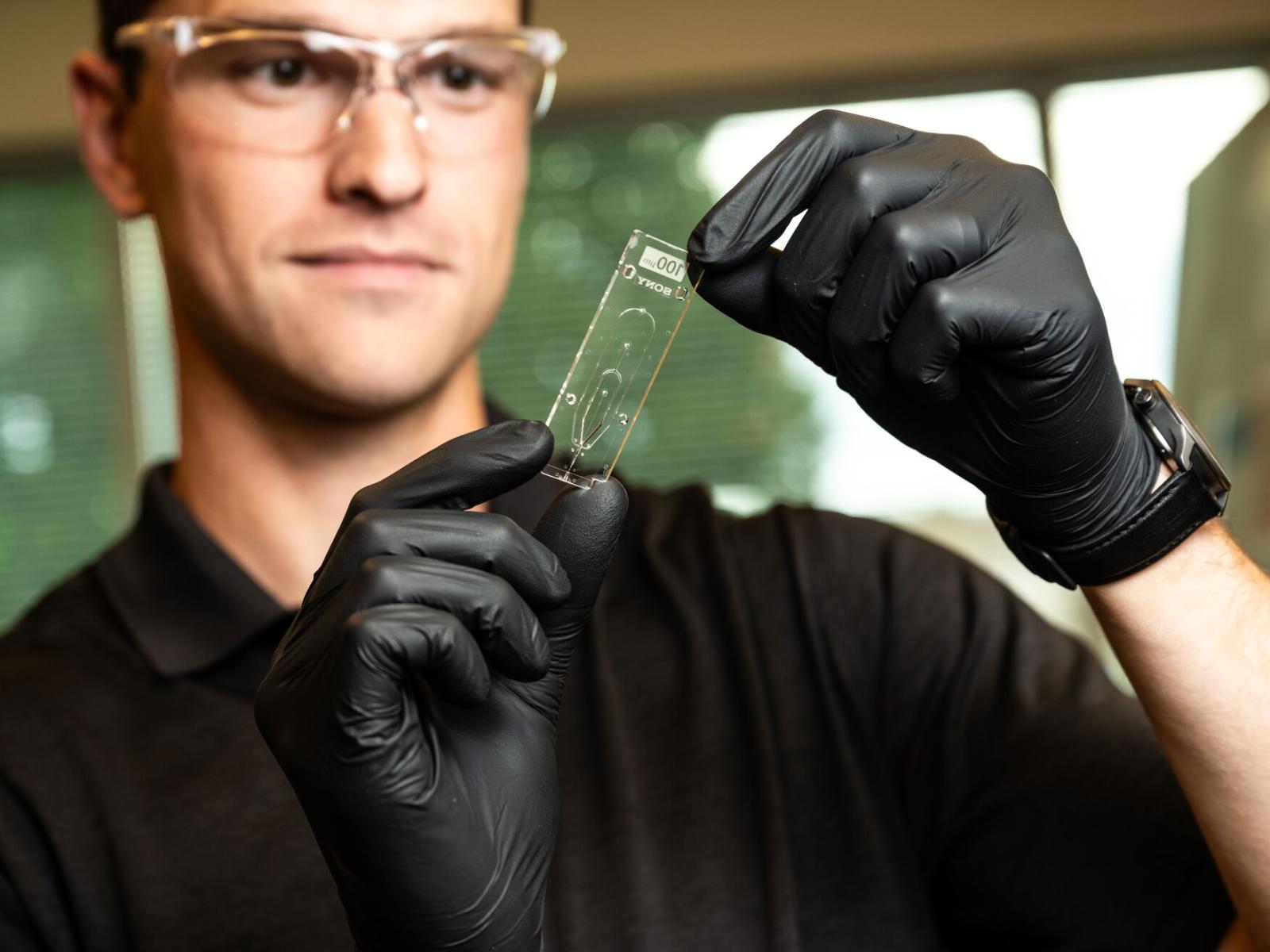A Pipeline for Identifying and Isolating Microbes Based on Function
New discovery hones in on lignocellulose-eating microbes within a complex community

Nicholas Reichart holds a specialized cell sorter chip that funnels and sorts microbes in samples, identifying and isolating those performing certain jobs within the community.
(Photo by Andrea Starr | Pacific Northwest National Laboratory)
The Science
In this study, scientists developed a process (or pipeline) that combined molecular probes—a specific chemical that binds to microbes carrying out a particular function—with a method that isolated these cells from their complex community. The result was an identified population of cells that expressed a specific function—metabolization of a key plant-derived microbial food source, lignocellulose.
The Impact
This research solves a gap in understanding the individual roles microbes play in breaking down plant material. With the new pipeline developed in this study, researchers can link individual microbes with specific activities, providing a more precise and targeted approach to studying their functions. By identifying cells that metabolize lignocellulose, researchers can manipulate microbes to create new foods, materials, and more. This opens new possibilities for further research in microbiome biology and lead to advancements in agriculture and environmental sustainability.
Summary
Microbial communities are complex arrangements of microbes that perform functions essential to all life on Earth. Understanding the roles of each microbe is key to building microbial communities that work for us.
The discoveries in this study close a knowledge gap, allowing scientists to identify a population of cells—among millions—that metabolize a key plant-derived microbial food source, lignocellulose. Deciphering the metabolism of lignocellulose is important to our pursuit to manipulate microbes for energy and agricultural sustainability.
Contact
Nicholas J. Reichart, Pacific Northwest National Laboratory, nicholas.reichart@pnnl.gov
Funding
This work was supported by the Predictive Phenomics Initiative Laboratory Directed Research and Development Program. Pacific Northwest National Laboratory is operated by Battelle for the Department of Energy under Contract DE-AC06-76RL01830. HSO was supported by a grant from the Netherlands Organization for Scientific Research (NOW TOP grant 2018-714.018.002).
Published: October 2, 2023
Reichart, NJ, Steiger, AK, Van Fossen, EM, et al. Selection and enrichment of microbial species with an increased lignocellulolytic phenotype from a native soil microbiome by activity-based probing. ISME COMMUN. 3, 106 (2023). https://doi.org/10.1038/s43705-023-00305-w